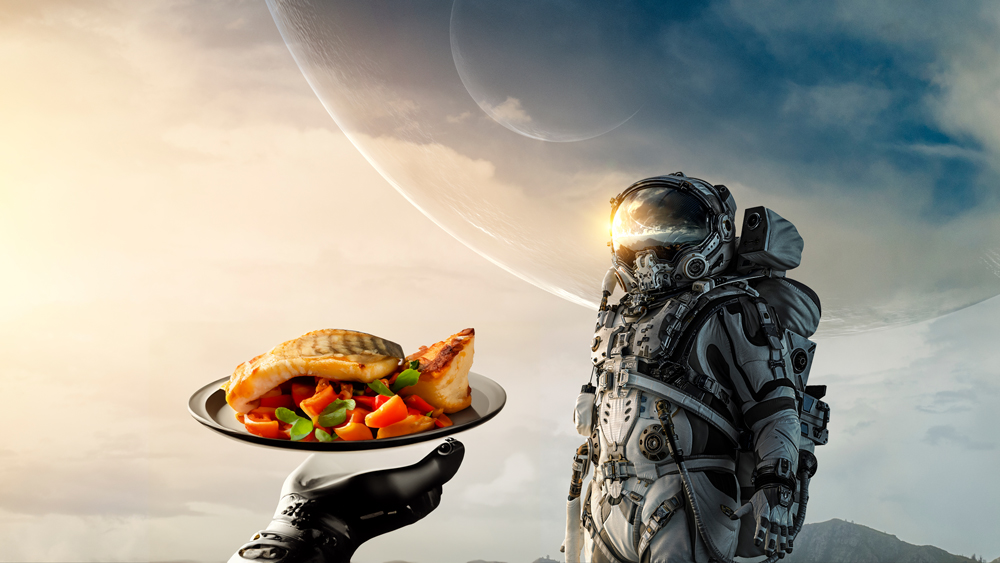
France aims to serve fish… on the moon
Astronauts – or perhaps we should say gastronauts – have already been harvesting tomatoes, potatoes and salad in space but let’s face it, that’s not much of a meal.
So Ifremer, the French Institute for Ocean Science, has undertaken the Lunar Hatch mission to see if it’s possible to fertilise fish eggs and hatch them aboard the International Space Station or on the future European Space Agency moon base.
According to a study published in the journal Frontiers in Space Technology and carried out in partnership with the University of Lorraine, sea bass eggs resist weightlessness very well, which makes them ideal for space travel, and tests have shown they are able to withstand takeoff too.
Ifremer marine biologist Cyrille Przybyla said: “We tested the effects of several factors likely to disrupt embryonic development or the viability of sea bass eggs […] We know how to programme the hatching date of their eggs based on the water temperature: the eggs take around 100 hours to develop at 14°C and double that at 10°C. This time frame coincides perfectly with the duration of a trip to the moon, ie. four to eight days.”
The eggs were subjected to the vibrations of a Soyuz rocket launch and to hypergravity, ie. an acceleration of the rocket from 1g to 5g, as well as weightlessness, and scientists found that survival and hatching rates were identical to control eggs on Earth. The project is now examining the effects of cosmic radiation on the embryos, with the results expected to be published in 2024. After that, capsules filled with fish eggs will be sent into orbit to see how they react.
If all goes well, the seven future residents could be enjoying fish on the menu twice a week, with a fresh supply of fish eggs provided every six months.
Latest posts:
- Vallée de la Gastronomie: A Spring Tour
- 8 standout food festivals to enjoy this summer
- Dordogne’s Strawberry Festival
- Ukraine brings croissants to France
- Enjoy Michelin standard food on Air France this summer
Lead photo credit : Astronauts could soon be sitting down to a supper of fish after a hard day’s work in space (c) Shutterstock
Share to: Facebook Twitter LinkedIn Email
More in Astronauts, Fishing, French Institute for Ocean Science, Lunar Hatch



